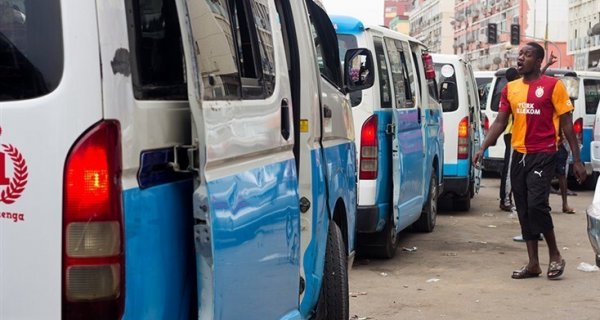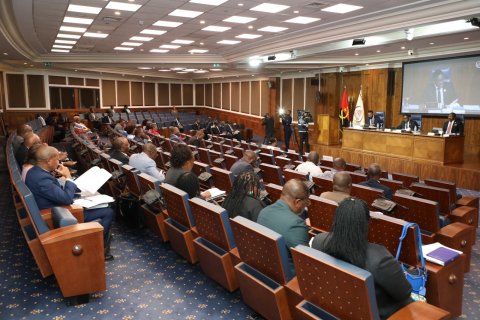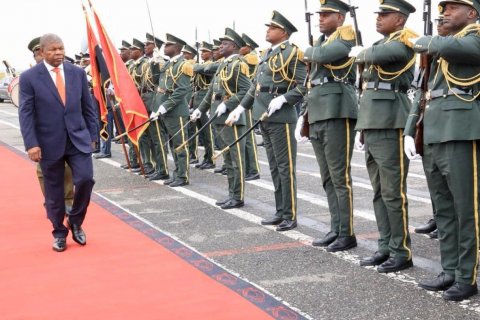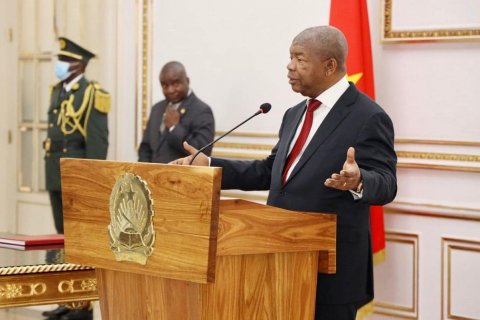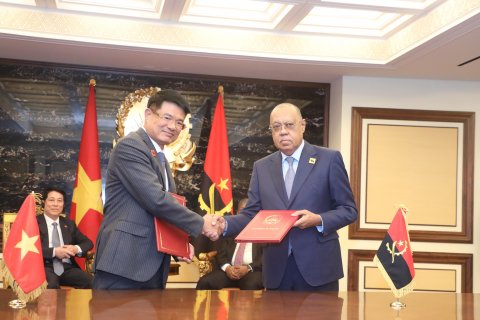At issue is the arrest of Anata's vice-president, Rodrigo Catimba, who was detained a week ago in Benguela province and transferred to the capital, Luanda.
According to his lawyer, Jovete Domingos, interviewed by Lusa this Thursday, his client's arrest occurred without a warrant, and there are currently no formal grounds to justify it.
Speaking to reporters also this Thursday, the Attorney General, Hélder Pitta Gróz, said that Rodrigo Catimba was taken to a guarantor judge on Wednesday, who ruled on the arrest.
"Therefore, it is a court decision, a judicial decision, which we must respect," said Hélder Pitta Gróz, emphasizing that, regardless of Rodrigo Catimba being vice-president of an association, "he is an Angolan citizen who must respect the law."
"And your civic behavior must be in accordance with the laws of the country, and in that regard, there was a court ruling, and there are legal mechanisms that can be used. I said earlier that he has a lawyer. Better yet, the lawyer knows better than anyone that there is an appeal, and he knows that the appeal isn't in the press or on social media; it's in court that you should present yourself, and that's where you should make all your claims regarding what you believe to be illegal or unjust," he emphasized.
Rodrigo Catimba's defense attorney said his client has been "illegally" detained for a week, without a judge's indictment, unaware of the crimes he's accused of, and urged the Public Prosecutor's Office to "immediately release" the vice president of Anata.
"Because under the law, there are only two prerequisites for detaining someone: when caught in the act or when armed with an arrest warrant. In his case, since he was not found committing any criminal act, we can understand that an arrest warrant should have been presented to him, hence we consider his detention unlawful," argued Jovete Domingos.
Rodrigo Luciano Catimba was arrested on July 31st in Benguela, three days after protests and riots occurred in several provinces following the taxi drivers' strike called by Anata, which resulted in 30 deaths, more than two hundred injuries, and over 1,500 arrests, according to authorities.
The Criminal Investigation Service (SIC) announced at the time that Catimba was arrested on suspicion of inciting violence, advocating crime, rebellion, and terrorism.
According to the lawyer, during the interrogation, the guarantee judge “simply” based himself on a video circulating on social media, dated July 25, in which Rodrigo Catimba called for a taxi strike.
Em causa está a detenção do vice-presidente da Anata, Rodrigo Catimba, detido há uma semana na província de Benguela e transferido para a capital, Luanda.
Segundo o seu advogado, Jovete Domingos, ouvido esta Quinta-feira pela Lusa, a detenção do seu constituinte ocorreu sem mandado, não existindo neste momento razões formais que a justifiquem.
Em declarações aos jornalistas, também esta Quinta-feira, o Procurador-Geral da República, Hélder Pitta Gróz, disse que Rodrigo Catimba foi conduzido ao juiz de garantias, Quarta-feira, que decidiu sobre a detenção.
“Portanto, é uma decisão de um tribunal, uma decisão judicial, que nós temos que respeitar” disse Hélder Pitta Gróz, sublinhando que, independentemente de Rodrigo Catimba ser vice-presidente de uma associação, “é um cidadão angolano que tem que respeitar as leis”.
“E o seu comportamento cívico tem que ser de acordo com as leis do país e nesse sentido houve uma decisão judicial e há os mecanismos legais que podem ser utilizados. Disse há bocado que ele tem um advogado, melhor ainda, o advogado sabe melhor do que ninguém que há recurso e sabe que o recurso não é na imprensa nem nas redes sociais, é no tribunal que se deve apresentar e é por aí que devem fazer todas as suas reivindicações que tenham sobre aquilo que acham que seja ilegal ou que sejam injustas”, frisou.
O defensor de Rodrigo Catimba disse o seu cliente está detido “ilegalmente”, há uma semana, sem despacho de pronúncia do juiz, desconhecendo os crimes de que é indiciado, instando o Ministério Público a “devolver imediatamente à liberdade” o vice-presidente da Anata.
“Porque nos termos da lei, só existem dois pressupostos para se deter alguém: quando encontrado em flagrante delito ou quando munido de mandado de detenção. No seu caso, por não ter sido encontrado a cometer qualquer acto criminoso, então, podemos entender que lhe deveria ser exibido um mandado de detenção, daí que julgamos que a sua detenção é ilegal”, argumentou Jovete Domingos.
Rodrigo Luciano Catimba foi detido no dia 31 de Julho, em Benguela, três dias após os protestos e tumultos registados em várias províncias, na sequência da greve decretada pelos taxistas convocada pela Anata, que resultou em 30 mortos, mais de duas centenas de feridos e mais de 1500 detenções, segundo dados das autoridades.
O Serviço Investigação Criminal (SIC) anunciou, na ocasião, que Catimba foi detido por suspeitas de incitação à violência, apologia de crime, rebelião e terrorismo.
De acordo com o advogado, durante o interrogatório, o juiz de garantias baseou-se “simplesmente” num vídeo que circula nas redes sociais, datado de 25 de Julho, onde Rodrigo Catimba convocava a paralisação dos táxis.

